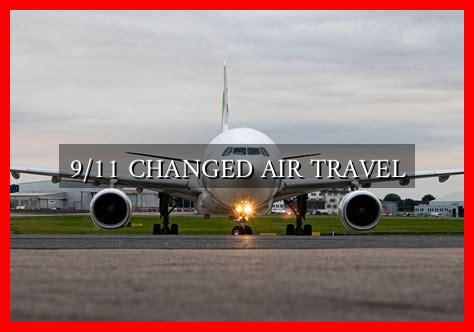-
Table of Contents
9/11 CHANGED AIR TRAVEL
September 11, 2001, marked a tragic day in American history that forever altered the landscape of air travel. The terrorist attacks on the World Trade Center and the Pentagon not only claimed thousands of lives but also had a profound impact on the way we approach aviation security and safety. In this article, we will explore how 9/11 changed air travel and the lasting implications it has had on the industry.
Increased Security Measures
One of the most immediate changes following 9/11 was the implementation of heightened security measures at airports worldwide. The Transportation Security Administration (TSA) was created to oversee security screening procedures, including the introduction of full-body scanners, enhanced pat-downs, and restrictions on liquids and gels in carry-on luggage.
- Passengers are now required to remove their shoes and belts during security screenings.
- Random checks and additional screenings have become commonplace to prevent potential threats.
- Air marshals are deployed on select flights to provide an added layer of security.
Impact on Passenger Experience
As a result of increased security measures, air travel has become more time-consuming and stressful for passengers. Long lines at security checkpoints, strict baggage regulations, and the fear of potential threats have all contributed to a decline in passenger satisfaction.
According to a study by J.D.
. Power, passenger satisfaction with airport security screening has decreased significantly since 9/11, highlighting the negative impact of these changes on the overall travel experience.
Technological Advancements
In response to the security threats posed by 9/11, the aviation industry has invested heavily in technological advancements to enhance safety and security measures. This includes the development of advanced screening technologies, such as millimeter-wave scanners and explosive detection systems, to detect potential threats more effectively.
Furthermore, airlines have implemented biometric screening processes, such as facial recognition and fingerprint scanning, to streamline the check-in process and improve security measures.
Financial Impact
9/11 had a significant financial impact on the aviation industry, with airlines experiencing a sharp decline in passenger demand following the attacks. According to the International Air Transport Association (IATA), global air travel demand fell by 2.7% in the year following 9/11, resulting in billions of dollars in losses for airlines worldwide.
Furthermore, the increased costs associated with implementing enhanced security measures have put a strain on airline profitability, leading to higher ticket prices and additional fees for passengers.
Conclusion
9/11 fundamentally changed the way we approach air travel, leading to increased security measures, technological advancements, and financial challenges for the aviation industry. While these changes have undoubtedly improved safety and security for passengers, they have also had a lasting impact on the overall travel experience.
As we reflect on the events of 9/11, it is important to recognize the resilience of the aviation industry in adapting to new challenges and prioritizing the safety and security of passengers. While air travel may never be the same as it was before 9/11, the industry continues to evolve and innovate to ensure a safer and more secure travel experience for all.
For more information on the impact of 9/11 on air travel, you can visit the Transportation Security Administration website.




